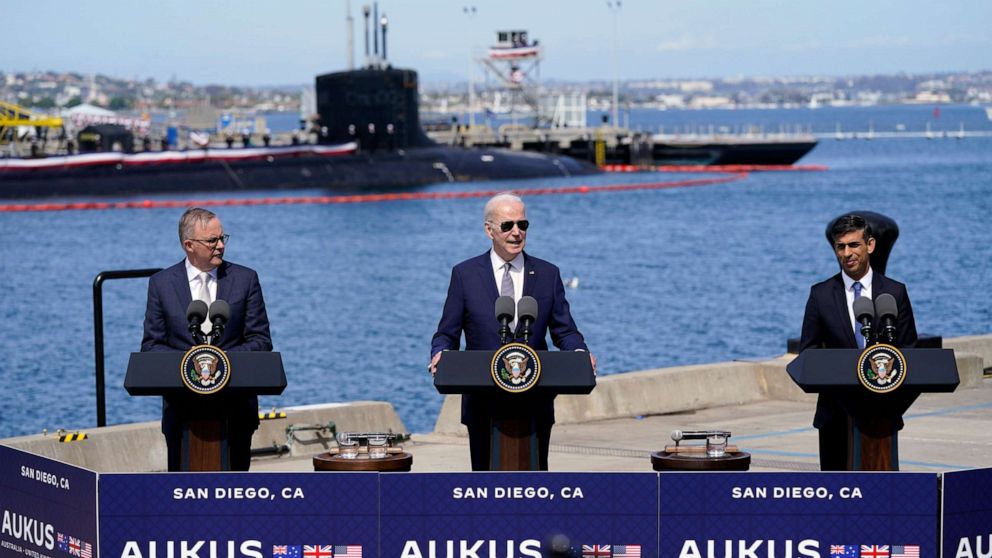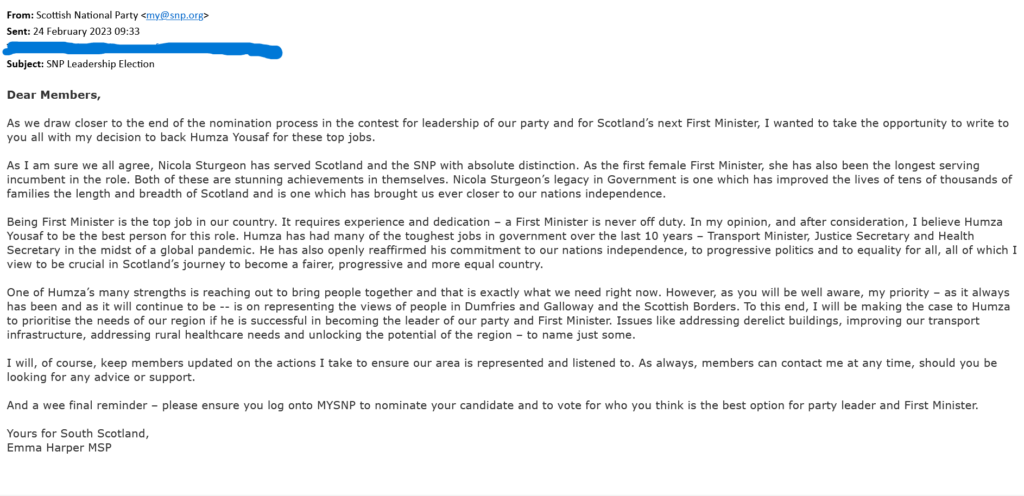The collapse of the governing party of the Scottish colonial administration is a direct consequence of the Union. It shows the need for Independence.
Devolution infantilises Scottish politics. The Scottish Government budget is a massive £60 billion. But that all comes through London. The Scottish Government has no effective control on the productivity of its economy.
It has extremely limited, essentially cosmetic, powers to vary fiscal policy, excluding indirect and corporate taxation. It has no power whatsoever over monetary policy. The “Scottish government” is in essence very little more than a distribution mechanism for government revenue channelled through London.
The Scottish government is not a government in any real sense of the term when it comes to the ability to run the Scottish economy. It does however have tremendous powers to manage huge sums in spending. It has a great deal of power, and extremely limited responsibility.
Of course, much spending is not really discretionary. The NHS and Education will always need vast sums. But even little droppings off the margins of £60 billion remain huge sums of money in personal terms, and the Scottish government finds itself able to deploy life changing patronage on an astonishing human scale.
The result of all this is that devolution has created a Scottish political class at Holyrood fattened on this dripping roast, and swept into heights of vainglory by the pretence that their tightly constrained body is a national parliament, when on any rational analysis it is a slightly tarted-up regional council.
It does not control the Scottish economy, it does not control Scottish foreign policy, it does not control Scottish defence policy, it is not permitted to enable democratic decisions on the future Scottish constitution.
It is not a parliament.
So here we have this “parliament”, stuffed with MSPs who are not particularly bright, and have an irresponsible role but control immense amounts of dosh to spread around. The first thing they do, of course, is feather their own nests and build little empires.
You will recall that the first crack in the SNP wall came with the resignation of their chief spin doctor, Murray Foote, for being caught in repeated lying to the media about SNP membership numbers.
I was astonished then to discover that Murray Foote was not an employee of the SNP, but of the Scottish Parliament. Apparently the Corporate Body of the Scottish Parliament (a committee of MSPs) provides money to each political party to fund the central staff “supporting” the party’s MSPs, including spin doctors.
Parties have every right to campaign at their own expense and try to persuade us to vote for them, but I object fundamentally to party spin doctors being paid by the taxpayer to spread their lies and propaganda.
Welcome to the cosy world of the Scottish political class, where everything is cushy on the gravy train of flowing money, and the public are mugs.
As the SNP leadership election campaign proceeded, I realised that there are hundreds more paid SNP staff than I realised, 95% of them toiling away night and day to bundle continuity candidate Humza over the finishing line.
As the daily flood of twitter endorsements for Humza started to reach the bottom of the barrel, endorsements were tweeted out from people billed as “activists”.
I googled one of the “activists”, Doug Daniel, and found he is in fact full-time staff – again paid for by the Scottish Parliament. He is “communications and campaigns manager” to an MSP.
Now I don’t mind the public purse paying for MSPs to have secretaries and constituency caseworkers, but why on earth should the public pay for MSPs’ campaigners?
It is not just the SNP, of course. All political parties welcome the ever burgeoning gravy train, and seize the opportunity to employ each other’s families, their friends, thrusting young careerists and, to an astonishing degree, young people they fancy.
(The confidential report Nicola Sturgeon and Leslie Evans received on sexual harassment inside the Scottish Parliament contained over 200 allegations. They buried everything except one against Alex Salmond. There have since been numerous high profile cases of harassment by MSPs).
The SNP command the lion’s share of the money as the ruling party, and the direct political class expands and expands. Why Humza needs almost twice as many ministers as Alex Salmond did, and more than twice as many SPADs, is not immediately obvious other than to provide jobs for the faithful.
But the “direct” political class pales into insignificance compared to the massive cloud of government-funded positions in Scotland’s disproportionately large “third sector”. Pop into any bistro on Byres Road in Glasgow, and you will find it replete with people from NGOs or the “creative industries”, keeping their bills to submit to some Scottish Government branch or agency or funded organisation.
Sometimes one of these figures emerges into the daylight. HIV Scotland, the “national HIV policy organisation”, were in receipt of a grant of £270,000 per year. Its chief executive was Nathan Sparling.
Sparling is a good example of the career path available to the Scottish political class. He started off his taxpayer-funded campaign as a parliamentary assistant to Angus Robertson.

Robertson and Sparling
He then became Chief Executive of HIV Scotland – from which position he was forced to resign, and has just been charged with fraud. He is of course entitled to the presumption of innocence.
HIV Scotland has stopped operating and been closed down.
The interesting thing about this is that I cannot find any reaction from anyone – not the Scottish government who were funding them, not the HIV sufferer community, not the Terence Higgins Trust – bemoaning the closure of HIV Scotland. It is as though the “national HIV policy organisation” is not missed and was not actually doing anything useful at all.
A remarkable number of those organisations being funded by the Scottish government in this way are “policy organisations”, rather than actually delivering a service. The salaries in this part of the troughocracy are better than in the direct public service, with several effectively taxpayer-funded NGO chief executives earning substantially more than MSPs.
One remarkable effect of this system is that the Scottish government is constantly holding stakeholder consultations on policy with policy NGOs funded entirely by the Scottish government to promote the policies of the Scottish government. (You probably need to read that sentence twice. I needed to write it twice.)
One reason the Gender Recognition Reform measure has caused such political damage to the SNP is that the excessive ideological purity of the approach was continually reinforced at closed meetings between Scottish government officials and trans rights campaigning organisations funded by the Scottish government.
This kind of paid echo chamber explains how the mad, and since apparently abandoned by Humza, position of insisting that convicted rapists could self-identify and simply change sex, came to be adopted.
But my main point here is that the taxpayer is paying for swathes of trans rights campaigners. As it happens I am sympathetic in general to self-ID (though not for rapists). But I do not believe the public should be paying for this stuff.
This political-class gravy train in Scotland is massively disproportionate to the size of the country.
Gender reform is just one area where the Scottish government has wasted large amounts of money paying young activists substantial salaries to agree with them. You will find Scottish government-funded environmental groups advocating for Highly Protected Marine Areas. You will find swarms of the public funded self-righteous advocating to ban alcohol advertising.
The Scottish government estimates its grant support to the third sector at half a billion pounds.
Yes £500,000,000.
That is a stunning amount of patronage. Most of it is to excellent organisations doing very good work. But that still leaves huge scope for political patronage to policy and campaigning organisations.
Often of course third sector organisations are involved in both service delivery and policy work, including not just policy development but lobbying and campaigning. One such organisation is Rape Crisis Scotland.
Now as it happens I would support a very substantial increase indeed in government support for rape victims, though I would prefer it to be delivered via the NHS and local authorities rather than a highly politicised NGO.
I should also like to see a very large increase in resources, in personnel, training, finance and equipment, and above all priority, devoted by Police Scotland to rape cases.
Rape Crisis Scotland is almost entirely Scottish Government funded. In that circular policy making, its chief executive Sandy Brindley has played a key role in formulating and promoting Lady Dorrian’s proposals to abolish juries in sexual assault trials.
In an example of exactly the kind of highly paid circle jerk I am explaining, the official Jury Trials Working Group contains three third sector organisations funded by the Scottish government which accordingly support the abolition of juries – Rape Crisis Scotland, Women’s Aid Scotland and Victim Support Scotland.
The Scottish government do not fund any organisation that works for fair trials, so there is no NGO represented in favour of juries.
You would imagine that the highly remunerated CEO of Rape Crisis Scotland, Ms Brindley, is a lovely person motivated by humanitarian concern, given that she devotes her life to campaigning for rape victims.
And yet an Employment Tribunal recently found that the Establishment hero Ms Brindley deliberately and persistently hounded a disabled woman out of her job at Rape Crisis. This is from the Scottish Legal News on the tribunal judgment:
In its decision, the Tribunal expressed concerns at the extensive role played by Ms Brindley throughout proceedings, commenting: “While the Tribunal was mindful that the respondent was a small mainly voluntary organisation, it seemed extraordinary that the chief executive of the organisation would make a recommendation that an employee be suspended, take part in a grievance hearing concerning that employee and then be present at the disciplinary and appeal hearings concerning that same employee where the employee was suggesting that the grievance and disciplinary proceedings ought to have been combined.”
It continued: “Ms Brindley appeared unable or unwilling to understand that her presence throughout both the grievance and disciplinary processes could have a bearing on the extent to which these were conducted in an impartial manner. It was clear to the Tribunal that Ms Brindley operated an invisible hand throughout both processes and her presence was not neutral.”
Assessing the respondent’s awareness of the claimant’s disability, the Tribunal said: “The respondent appeared to be of the view that in the absence of a formal diagnosis, then they were not obliged to consider whether there were any steps they ought to take in terms of the claimant’s condition. While such a position is of course wrong in law, the Tribunal was extremely surprised that an organisation such as the respondent, whose services were focussed on supporting women who had experienced trauma would adopt such a position.”
…The Tribunal concluded: “The disciplinary hearing was not fair. Further, the presence of Ms Brindley at every stage of the proceedings reinforced the Tribunal’s view that the dismissal of the claimant was predetermined. Ms Brindley was aware of the grievance raised by the claimant and the outcome and recommendations which had been made. However, she did not raise this with the disciplinary hearing as an alternative potential outcome, which the Tribunal found very surprising.”
The Tribunal was “extremely surprised” and Ms Brindley’s behaviour was “Surprising”. That is about as tough as language ever gets from an employment tribunal, but their opinion of Ms Brindley is extremely clear. She withheld information from a disciplinary hearing, and her “invisible hand” hounded a disabled woman out of a job.
I would, incidentally, be prepared to wager a sum that the £50,000 in compensation and costs that Brindley’s appalling behaviour cost Rape Crisis Scotland, will ultimately be met by public funds. Certainly not by Brindley.
Yet Sandy Brindley remains a Duchess in the enormous realm of Scottish government-favoured, public funded NGO’s, a star in the firmament of policy lobbyists with big taxpayer-funded salaries.
With hysterical levels of hypocrisy, Brindley, who broke all procedure against her employee, is still the Scottish government’s star authority on the requirements of justice in sexual assault cases.
Their jobs may not be in Politics with a capital P, but I would argue that Ms Brindley and Mr Sparling are prime examples of Scotland’s sprawling, public funded political class, excrescences of the vast patronage wielded by Holyrood.
Of course it extends beyond the third sector. Failed Scottish politicians easily find eye-watering highly paid positions in Scottish universities, for which they are in no sense qualified. Wendy Alexander, Kezia Dugdale and Stephen Gethins are all clear examples.
Arts funding in Scotland and the capricious patronage behind it requires not just a separate article, but a separate book. One theatre in Aberdeen not entirely unconnected to the Aberdeen Independence Movement received more government Covid relief funding than the entire independent music festival sector.
So whatever happened in SNP finances must be seen in this much wider context of the morally shrivelled political culture of Scotland, of the limited power but excessive patronage enjoyed by Scottish governments and of the widespread use of public money for personal advantage of the political class.
The devolution system is a moral sink. Scottish Labour was massively corrupt in its years in power, with good old fashioned brown-envelope corruption all over Scottish central and local government in the Labour years. It was worse than the SNP.
But what really killed off Scottish Labour’s years of power was the recognition by the public that the Scottish Labour political class were interested in their own careers entirely, and had zero real concern for the people of Scotland.
The problem is that all those careerists nowadays flock in to the SNP rather than Labour. The interests of the Scottish political class once again take priority over the interests of the Scottish people.
It is a direct consequence of the fundamentally flawed devolution system, which confers power of patronage with no real responsibility for the economy.
The underlying fact is that Scotland produces vastly more wealth for government in London than the amount which is returned to Holyrood. But the producers are diverse, whereas the portion returned is concentrated into a single channel of distribution, creating that power of patronage and corruption.
Thus we have this strange combination of a poor and exploited nation but a sated and self-satisfied political class. This kind of devolution is precisely how to buy off any Scottish leadership and draw the sting of popular demand for Independence.
That was of course Blair’s open and admitted goal in initiating the devolution project. And it works.
Humza Yousaf has exacerbated all this by specifically excluding from his government those who have some understanding of the supply side of the economy, particularly Kate Forbes and Ivan McKee, and filling his cabinet precisely with those who are interested in nothing but how to control funding to client groups.
Devolution is a trap. Working within the financial ruination that is Westminster economic policy, with no monetary and little fiscal control, suffering from hard Brexit and Tory austerity, it is impossible properly to run proper public services.
Of course Scottish education and the Scottish NHS are in a bloody terrible state. Because of the grossly mismanaged UK economy and Tory austerity, they are bound to be in a terrible state. But devolution makes the SNP take responsibility for the disaster made elsewhere, and it ends up defending the indefensible and arguing that it is not quite as terrible as London.
Under devolution the Scottish government will always get it in the neck for problems made in London. Devolution is a trap. The Scottish political class accept it, and furiously defend it, because it feathers their nest.
The only escape for Scotland is Independence. The Scottish political class are bought off by the corruption of devolution.
This scenario is familiar to every student of imperialism and post-colonial studies. There is always a nominally nationalist governing caste of collaborators sucking at the Imperial teat. Those collaborators always claim to represent and act in the interests of their nation.
The balance of resource flows always benefits the Imperial capital and disbenefits the colony, but enough is “graciously” dispensed to the local ruling caste to keep them sweet.
Scotland is not in any way unique. It is a sad old story. The good news is that the people always triumph in the end and throw off both the local collaborating political caste and the yoke of foreign rule.
That London yoke is onerous. It has impoverished Scotland for centuries, and of course current Tory Westminster corruption is several orders of magnitude worse than anything seen in Scotland. I have every sympathy for those wondering why the houses of Michelle Mone and dozens of other senior Tories who profiteered from Covid have not been turned over by police.
Scotland’s people need to move forward quickly to Independence. That will probably entail writing off the SNP.
Realising that devolution and its advocates are not friends to Independence is a key step to progress.
————————————————
Forgive me for pointing out that my ability to provide this coverage is entirely dependent on your kind voluntary subscriptions which keep this blog going. This post is free for anybody to reproduce or republish, including in translation. You are still very welcome to read without subscribing.
Unlike our adversaries including the Integrity Initiative, the 77th Brigade, Bellingcat, the Atlantic Council and hundreds of other warmongering propaganda operations, this blog has no source of state, corporate or institutional finance whatsoever. It runs entirely on voluntary subscriptions from its readers – many of whom do not necessarily agree with the every article, but welcome the alternative voice, insider information and debate.
Subscriptions to keep this blog going are gratefully received.
Choose subscription amount from dropdown box:
Paypal address for one-off donations: [email protected]
Alternatively by bank transfer or standing order:
Account name
MURRAY CJ
Account number 3 2 1 5 0 9 6 2
Sort code 6 0 – 4 0 – 0 5
IBAN GB98NWBK60400532150962
BIC NWBKGB2L
Bank address Natwest, PO Box 414, 38 Strand, London, WC2H 5JB
Bitcoin: bc1q3sdm60rshynxtvfnkhhqjn83vk3e3nyw78cjx9
Ethereum/ERC-20: 0x764a6054783e86C321Cb8208442477d24834861a
Subscriptions are still preferred to donations as I can’t run the blog without some certainty of future income, but I understand why some people prefer not to commit to that.

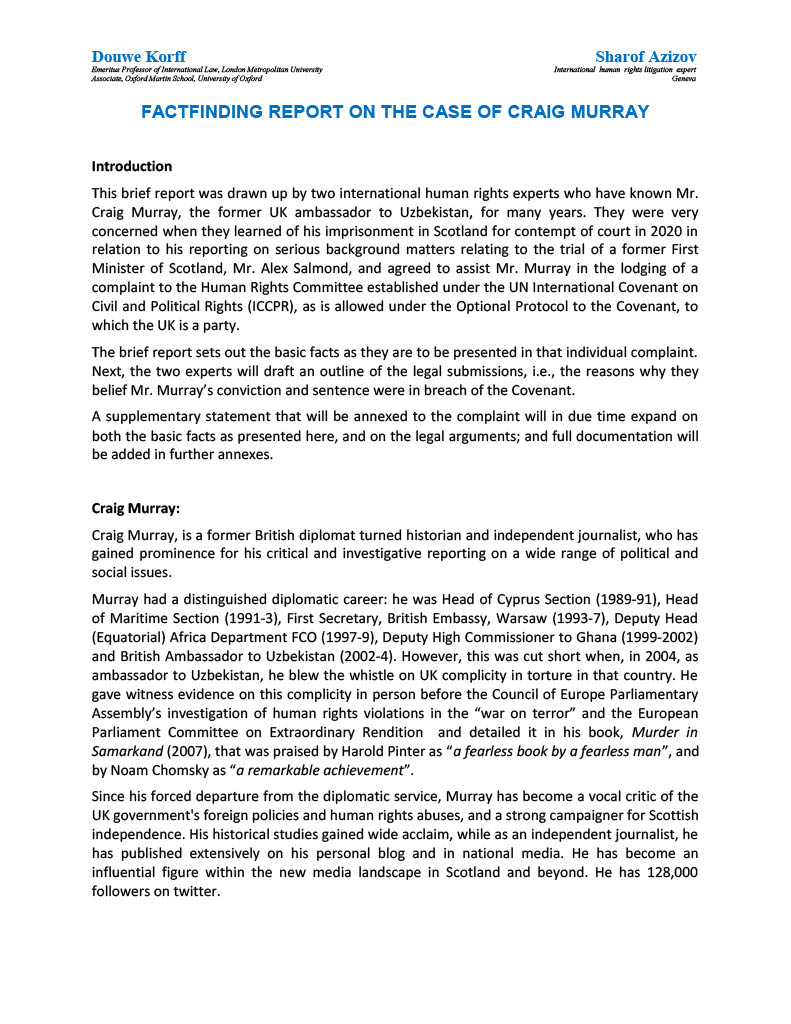
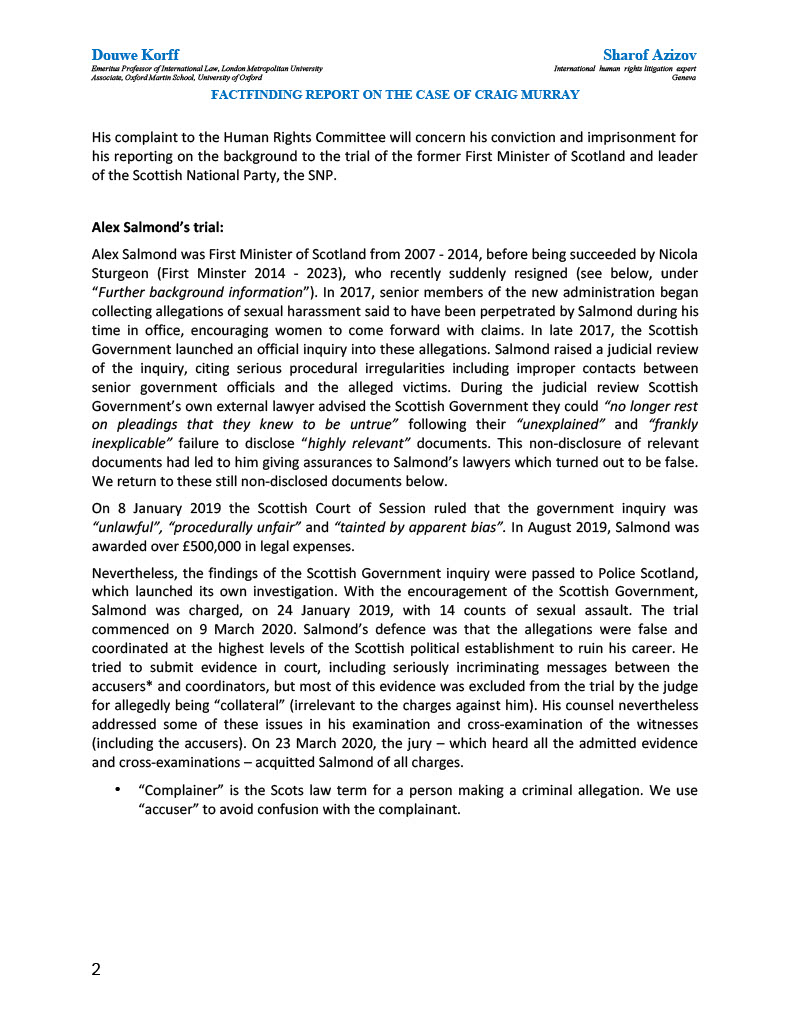
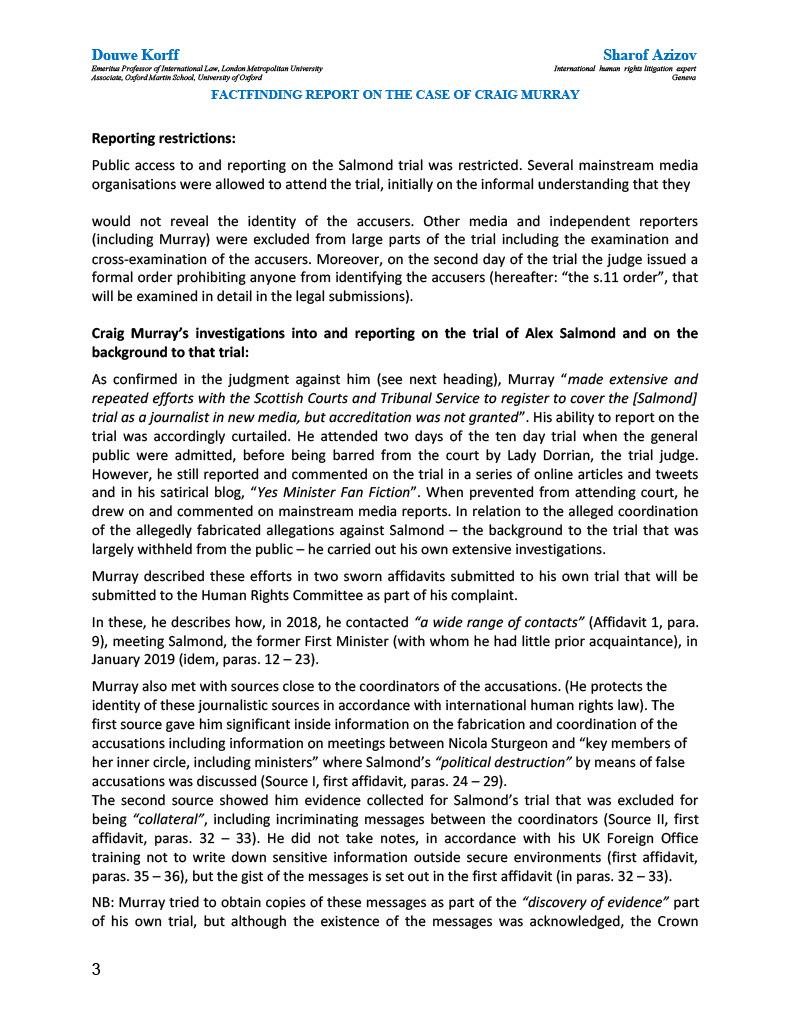
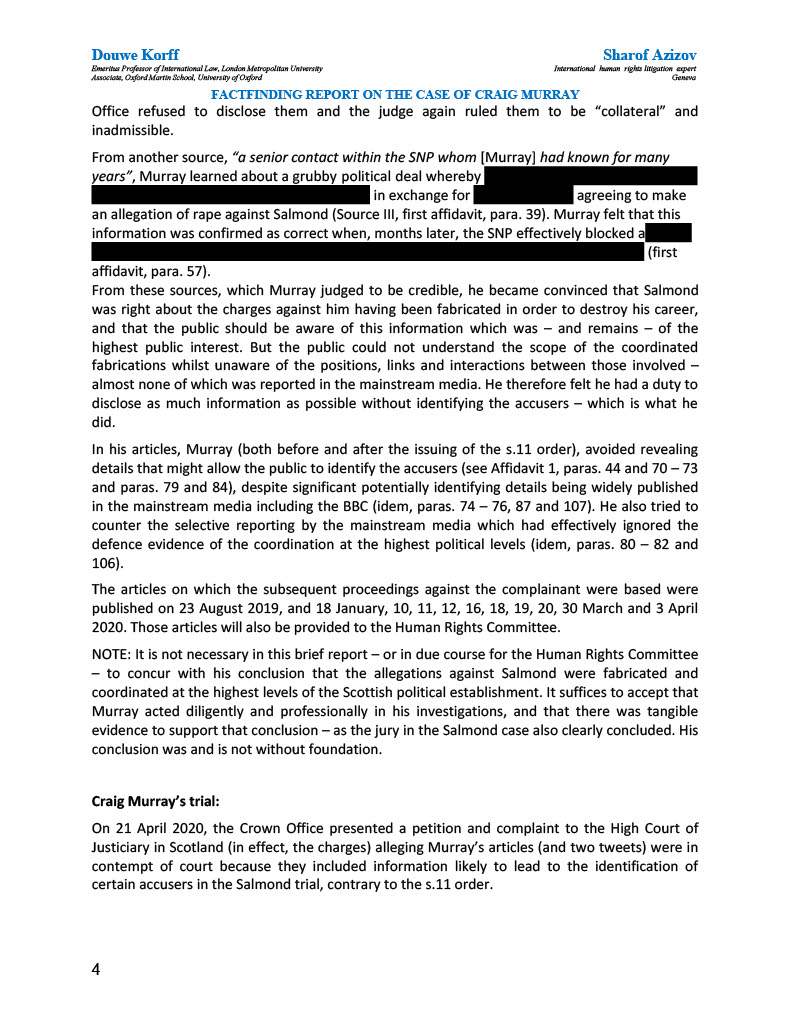
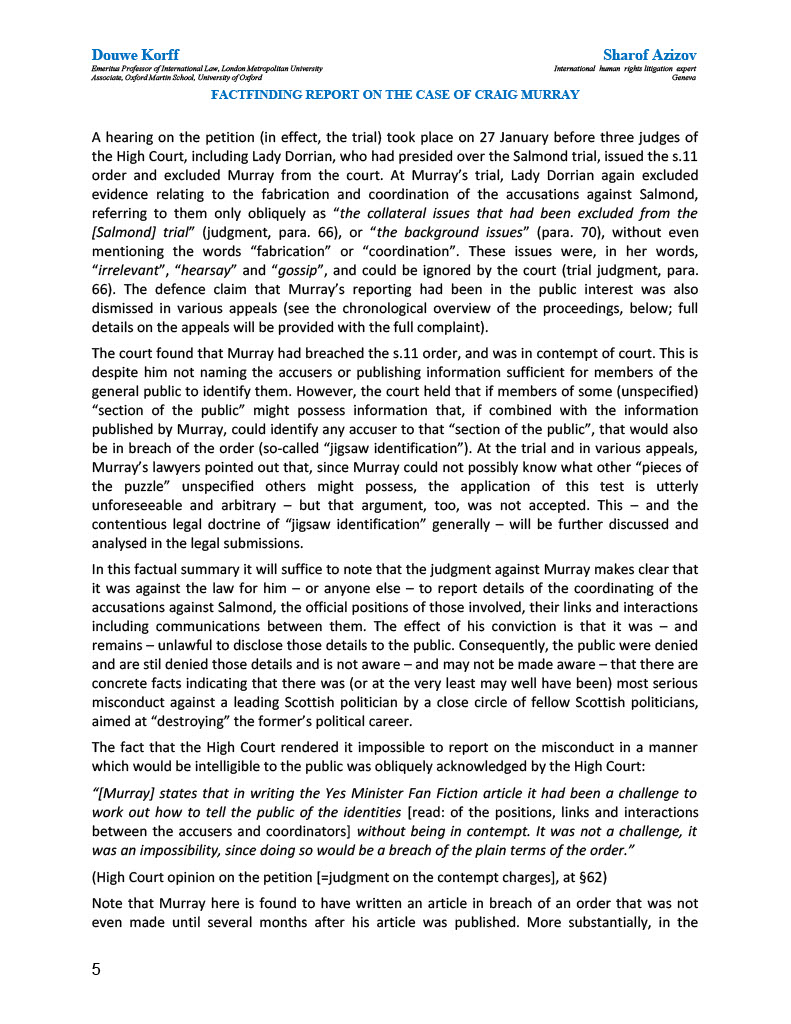
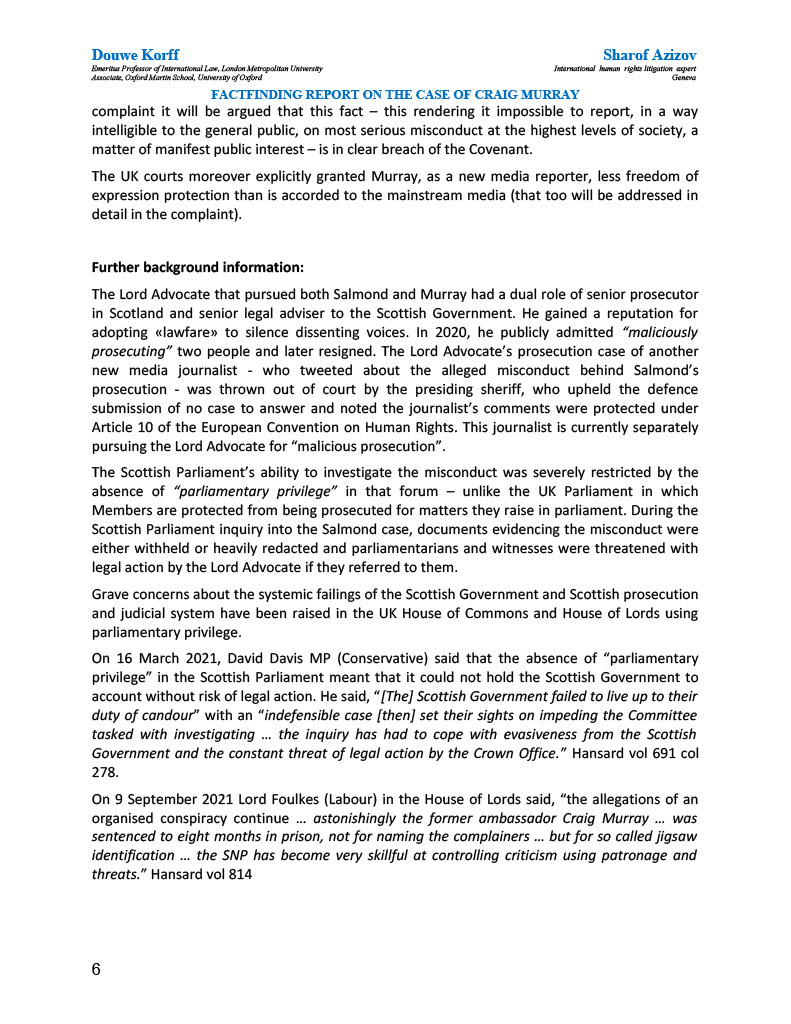
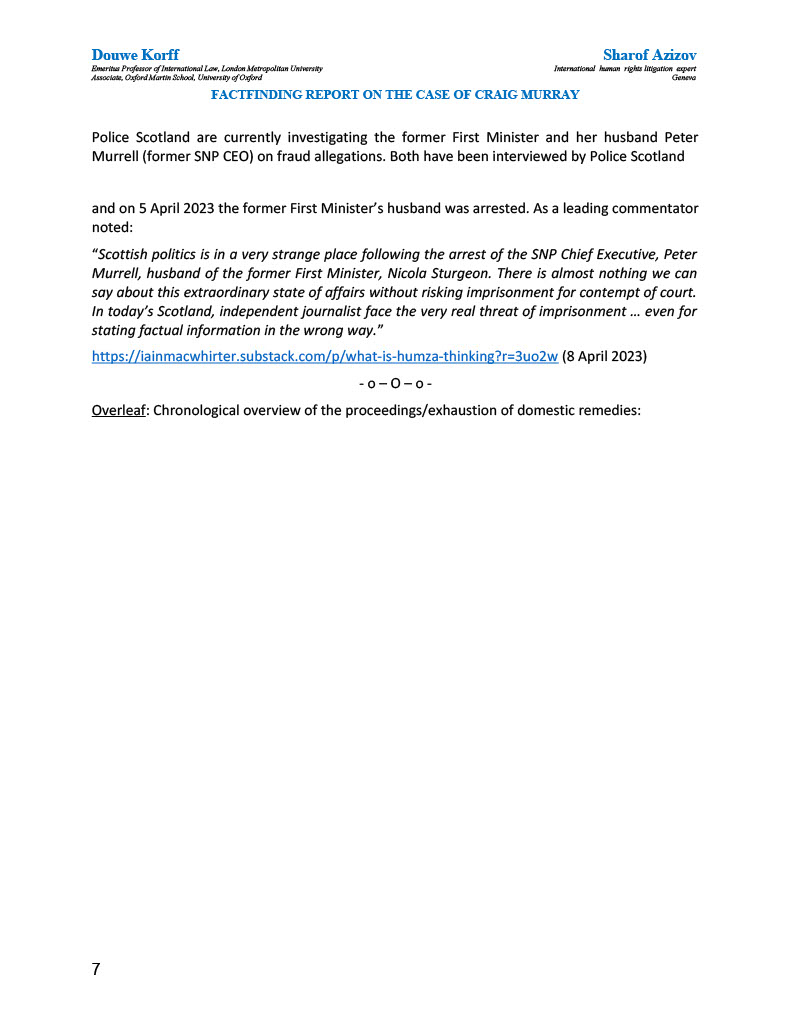
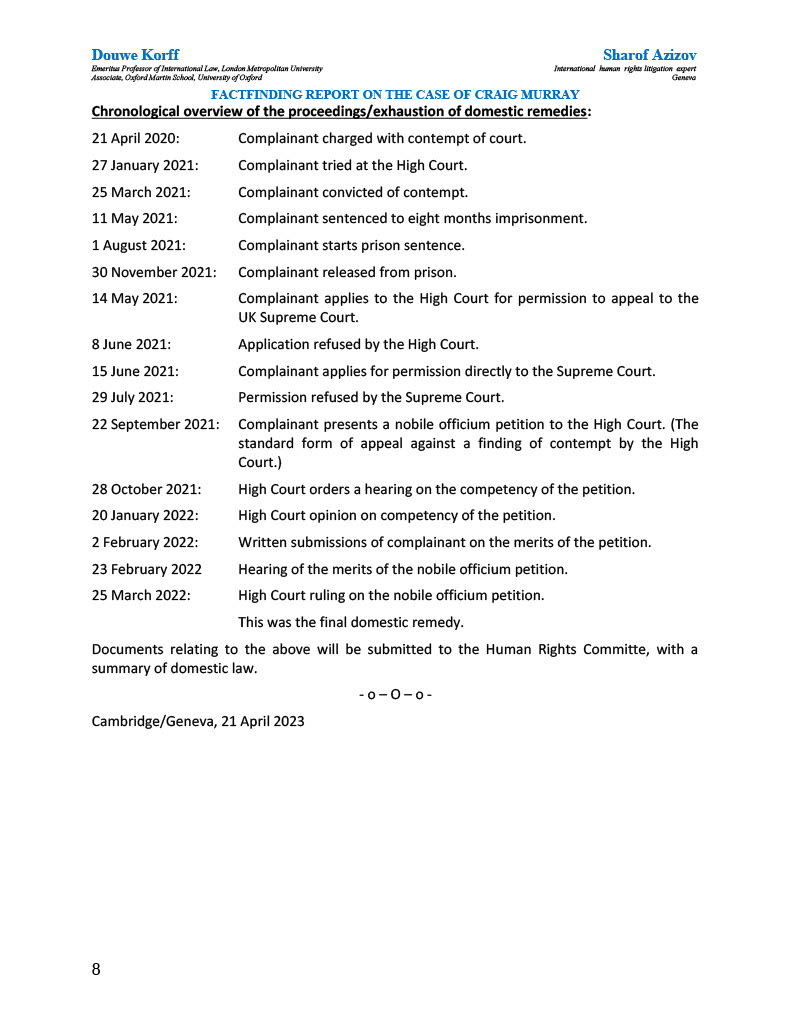

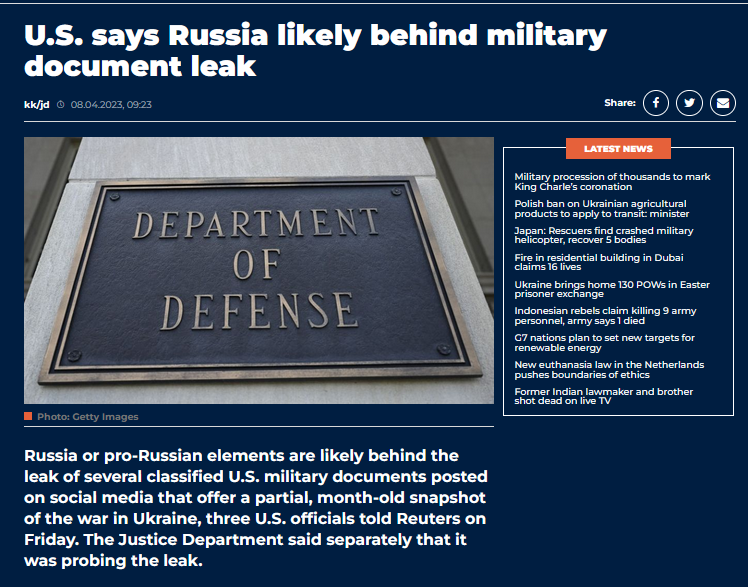


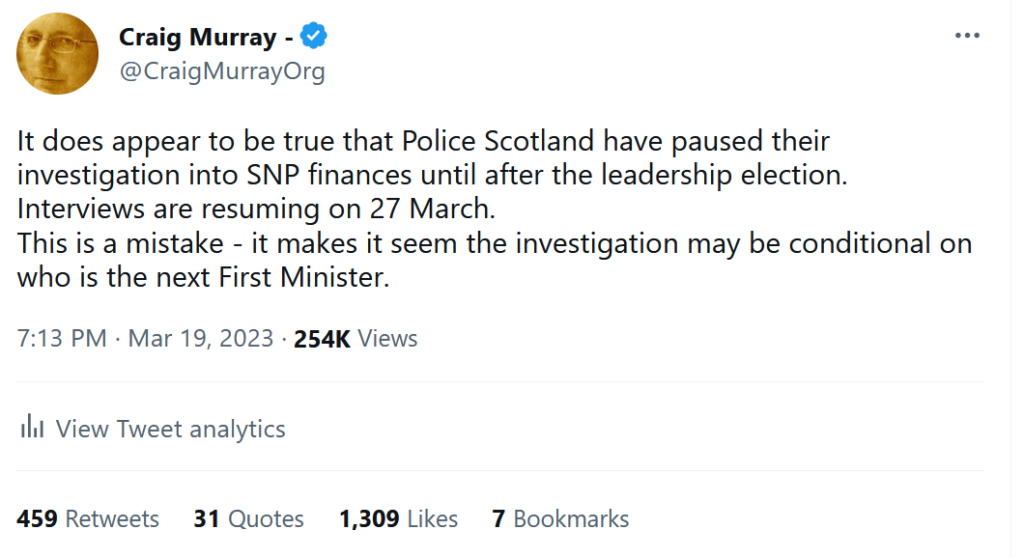 The threat of imprisonment for contempt of court again looms over me if I tell you (again) too much of the truth about the arrest of Nicola Sturgeon’s husband Peter Murrell. But I can make a few observations.
The threat of imprisonment for contempt of court again looms over me if I tell you (again) too much of the truth about the arrest of Nicola Sturgeon’s husband Peter Murrell. But I can make a few observations.




